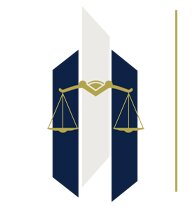Best Toxic Mold Lawyers in Bloemfontein
Share your needs with us, get contacted by law firms.
Free. Takes 2 min.
List of the best lawyers in Bloemfontein, South Africa
About Toxic Mold Law in Bloemfontein, South Africa
Toxic mold, often referred to as "black mold" or "Stachybotrys chartarum," is a fungal growth that can develop in damp buildings and pose significant health risks to occupants. In Bloemfontein, as in the rest of South Africa, issues related to toxic mold typically fall under property, environmental, and health & safety law. Legal matters may arise regarding residential, commercial, or public properties contaminated by mold, especially when exposure results in property damage or personal injury.
Why You May Need a Lawyer
Legal assistance may be necessary in several common situations involving toxic mold:
- Tenant-Landlord Disputes: Tenants may experience health issues due to mold in rental properties. If landlords fail to address the problem, legal intervention may be necessary.
- Property Sales: If a buyer discovers mold after purchasing a property, there might be grounds for a claim against the seller or agent, depending on disclosure obligations.
- Insurance Claims: Disputes may arise with insurers regarding cover or compensation for mold remediation.
- Physical Injury: Individuals suffering health problems due to mold exposure may seek compensation for medical expenses and damages.
- Workplace Mold: Employees exposed to mold at work may have claims under occupational health and safety regulations.
A lawyer can help you assess your case, navigate local laws, gather evidence, and represent you in negotiations or court proceedings.
Local Laws Overview
While there is no specific "toxic mold law" in South Africa or Bloemfontein, several legal frameworks are relevant:
- Rental Housing Act, 50 of 1999: This act sets out landlord and tenant responsibilities, including providing habitable premises. Mold may render a property uninhabitable, giving tenants recourse.
- Occupational Health and Safety Act, 85 of 1993: Employers must ensure a safe work environment. This can include addressing mold where it poses a health risk to employees.
- Consumer Protection Act, 68 of 2008: Property sellers and agents must disclose latent defects such as mold to buyers.
- National Building Regulations and Building Standards Act, 103 of 1977: Sets minimum standards for construction, which may include proper waterproofing and ventilation to prevent mold.
In practice, legal duties to address mold may arise from one or a combination of these laws, as well as common law duties of care.
Frequently Asked Questions
What causes toxic mold to develop in properties?
Toxic mold develops in damp, poorly ventilated areas. Causes include leaking roofs or pipes, rising damp, inadequate drainage, or recent flooding. Prompt action is needed to fix moisture problems and prevent mold growth.
What are the health effects of exposure to toxic mold?
Health effects vary, but can include respiratory problems, headaches, allergic reactions, skin irritation, and fatigue. Vulnerable individuals, such as children, elderly people, or those with pre-existing respiratory conditions, are at higher risk.
What are landlords’ obligations regarding mold in rental properties?
Landlords must provide and maintain habitable premises. Failure to repair leaks or remove mold after being notified may breach the Rental Housing Act and entitle tenants to remedies, including repair orders or compensation.
Can tenants withhold rent if there is a mold problem?
Tenants are generally not allowed to unilaterally withhold rent. Instead, they should notify the landlord in writing and allow reasonable time for repairs. If the issue is not resolved, they may lodge a complaint with the Rental Housing Tribunal or seek legal advice.
How can buyers protect themselves from hidden mold in purchased properties?
Buyers should carefully inspect properties, request disclosure of known defects, and consider including mold inspection clauses in sale agreements. If undisclosed mold is discovered post-sale, legal action may be possible against the seller.
How do insurance policies handle mold damage?
Insurance policies may or may not cover mold damage, depending on the cause and policy wording. Claims may be denied if mold is due to long-term neglect rather than a sudden event, so review your policy and consult your insurer.
Can employees claim against employers for mold-related health issues?
Employees can report unsafe workplace conditions to their employer or the Department of Employment and Labour. Employers must remedy hazards that pose health risks, including mold, under the Occupational Health and Safety Act.
What evidence is needed to support a toxic mold claim?
Useful evidence includes photographs of affected areas, medical reports linking health issues to mold, reports from reputable mold remediation specialists, and records of complaints made to landlords or employers.
Where can I lodge a complaint about mold in a rental property?
In Bloemfontein, tenants can contact the local Rental Housing Tribunal for disputes. The municipality’s Environmental Health Department may also assist if public health is at risk.
How can toxic mold be removed safely?
Professional mold remediation companies are best equipped to handle significant infestations. DIY removal is possible for small areas but must be done with care; incorrect cleaning can spread spores and worsen the problem.
Additional Resources
- Rental Housing Tribunal, Free State: Assists with landlord-tenant disputes, including those related to mold in rental properties.
- Department of Employment and Labour: Oversees workplace health and safety complaints.
- Mangaung Metropolitan Municipality Environmental Health: Handles public health complaints, including mold-related concerns.
- Legal Aid South Africa: May provide assistance if you cannot afford private legal services.
- Professional Mold Remediation Companies: For inspection and safe mold removal.
Next Steps
If you believe you are facing a toxic mold issue in Bloemfontein, consider the following steps:
- Document the problem with dates, photographs, and any correspondence with landlords, sellers, or employers.
- Consult a medical professional if you are experiencing health symptoms due to mold exposure.
- Notify the responsible party (landlord, seller, or employer) in writing and allow them a reasonable time to remedy the issue.
- If unresolved, contact the relevant governmental body (e.g. Rental Housing Tribunal, Environmental Health Department).
- If the dispute persists, seek legal advice from an attorney experienced in housing, property, or environmental law. Prepare your documentation to facilitate your consultation.
- Consider alternative dispute resolution methods, such as mediation, before proceeding to court if possible.
Remember, acting quickly is important - both to protect your health and to preserve your legal remedies.
Lawzana helps you find the best lawyers and law firms in Bloemfontein through a curated and pre-screened list of qualified legal professionals. Our platform offers rankings and detailed profiles of attorneys and law firms, allowing you to compare based on practice areas, including Toxic Mold, experience, and client feedback.
Each profile includes a description of the firm's areas of practice, client reviews, team members and partners, year of establishment, spoken languages, office locations, contact information, social media presence, and any published articles or resources. Most firms on our platform speak English and are experienced in both local and international legal matters.
Get a quote from top-rated law firms in Bloemfontein, South Africa — quickly, securely, and without unnecessary hassle.
Disclaimer:
The information provided on this page is for general informational purposes only and does not constitute legal advice. While we strive to ensure the accuracy and relevance of the content, legal information may change over time, and interpretations of the law can vary. You should always consult with a qualified legal professional for advice specific to your situation.
We disclaim all liability for actions taken or not taken based on the content of this page. If you believe any information is incorrect or outdated, please contact us, and we will review and update it where appropriate.









